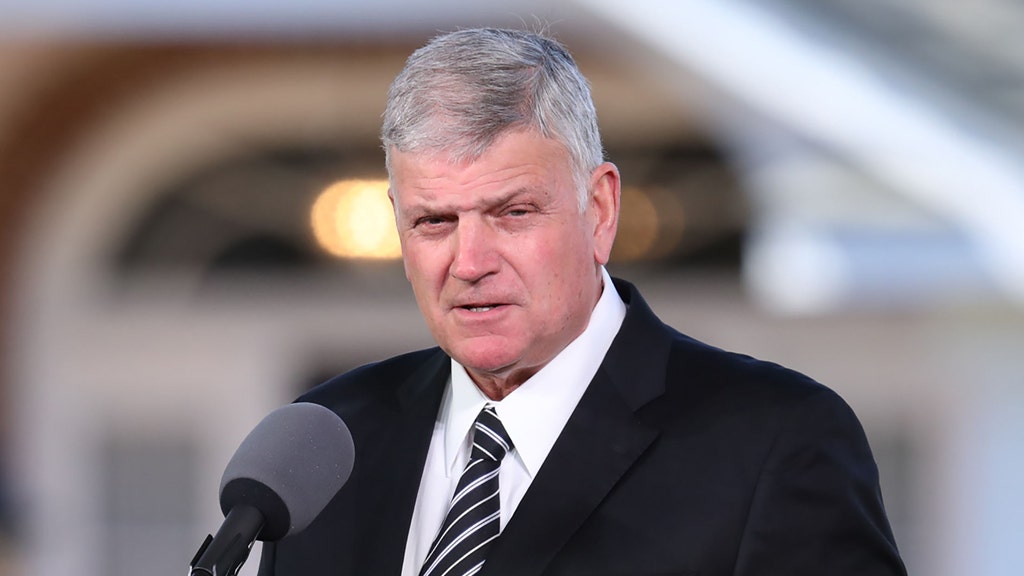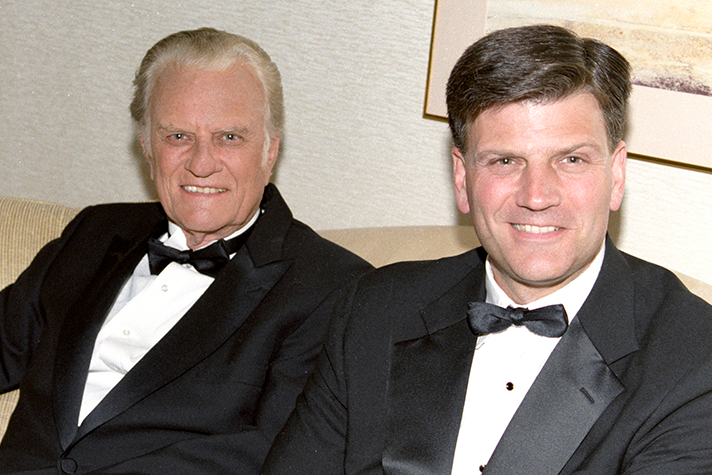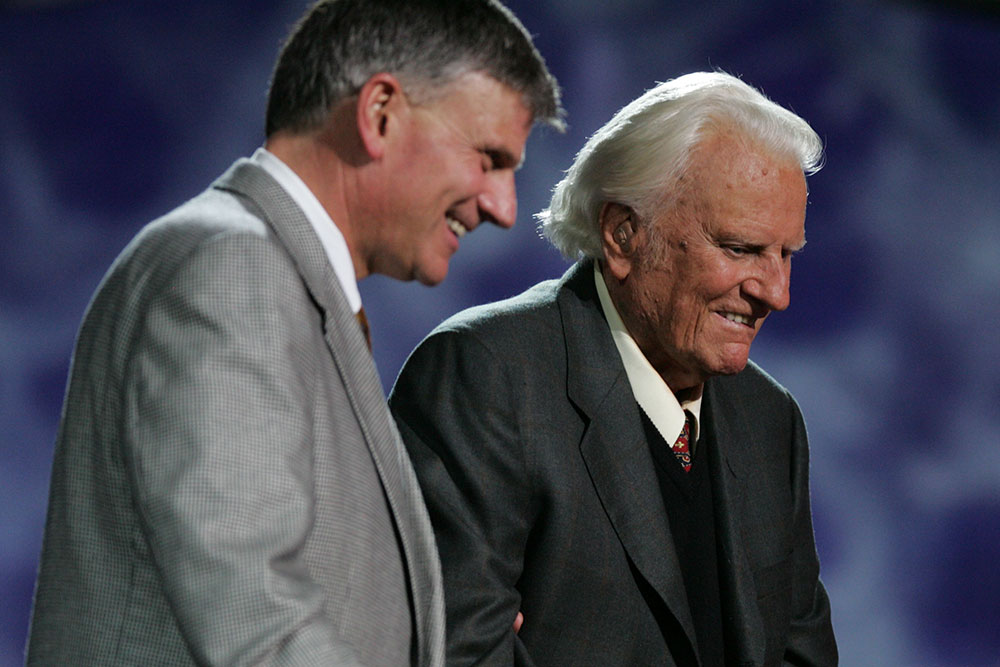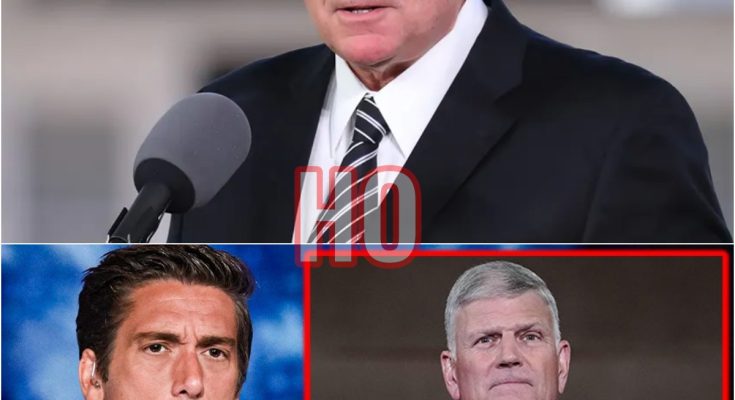Franklin Graham, born in Asheville, North Carolina, on July 14, 1952, is the eldest son of the prominent evangelist Billy Graham and his wife, Ruth Bell Graham. From his earliest days, Franklin was surrounded by the profound influence of Christianity, growing up in a household steeped in religious values and the teachings of the Christian faith. Despite this rich spiritual environment, Franklin’s formative years were marked by rebellion and a struggle with his identity, ultimately leading to a powerful transformation that would shape the course of his life and ministry.

At 72, Franklin Graham, a towering figure in evangelical Christianity, has announced he is stepping back from the demanding roles that have defined his life. The decision, though wrapped in grace and humility, is a somber moment for his followers and marks a significant chapter in the legacy of a man who has inspired millions. While Graham’s contributions to humanitarian aid and evangelism remain indelible, the reasons behind his farewell are deeply personal and rooted in the realities of aging and health challenges. This transition not only reflects his journey but also serves as a poignant reminder of the delicate balance between duty, faith, and self-care.
Born on July 14, 1952, in Asheville, North Carolina, Franklin Graham is the eldest son of the legendary evangelist Billy Graham. Raised in a household where faith was a cornerstone, he grew up under the watchful eyes of his father and his mother, Ruth Bell Graham. Despite this nurturing environment, Franklin’s early years were tumultuous. His teenage rebellion led him astray from the values his family cherished, but a profound spiritual awakening in his early twenties brought him back to the Christian faith.
This transformation became the foundation of his life’s work. Franklin emerged not only as a preacher of the gospel but also as a compassionate leader in global humanitarian efforts. His dual roles as president and CEO of Samaritan’s Purse and the Billy Graham Evangelistic Association (BGEA) allowed him to blend faith with action, providing relief to millions worldwide while spreading the message of Jesus Christ.
For decades, Franklin Graham carried the torch of his father’s legacy, steering the BGEA into the modern era while expanding Samaritan’s Purse into a global powerhouse of humanitarian aid. Under his leadership, these organizations responded to disasters like the Haiti earthquake, the Ebola outbreak in West Africa, and countless crises caused by conflict and natural calamities. Graham was known for his hands-on involvement, often traveling to disaster-stricken areas to provide aid and comfort.
However, this relentless commitment to service came at a cost. The physical toll of constant travel, public engagements, and leadership responsibilities has compounded with the natural challenges of aging. At 72, Franklin Graham is now openly confronting the limitations of his health and energy, acknowledging the need to prioritize his well-being.

Franklin Graham’s announcement to step back comes amid growing concerns about his health. In recent years, he has faced multiple health challenges, including a heart surgery in 2021 to treat pericarditis, a condition that causes inflammation around the heart. While he recovered successfully, the experience served as a wake-up call. It reminded him and his family of the importance of rest and the limitations imposed by age.
Friends and colleagues close to Graham have noted that the demands of his work have become increasingly strenuous. Leading two major organizations requires a level of energy and resilience that is difficult to sustain, particularly as health concerns mount. Graham himself has spoken candidly about the need to slow down, reflecting a humility that contrasts with his otherwise steadfast and determined persona.
Rather than retiring entirely, Franklin Graham is opting for a gradual transition. He plans to step back from day-to-day operations while continuing to serve in an advisory capacity. This shift will allow him to focus on mentoring younger leaders within the organizations he has nurtured, ensuring a seamless transfer of responsibility and vision.
In a recent statement, Graham emphasized the importance of preparing the next generation to lead. “It’s not about me,” he remarked. “It’s about the mission of sharing the gospel and serving those in need. That mission will continue long after I’m gone.”
This approach reflects his deep understanding of the transient nature of leadership. By stepping back now, he ensures that Samaritan’s Purse and the BGEA are well-positioned to thrive under new leadership, continuing the work he has dedicated his life to.
Franklin Graham’s contributions extend far beyond the pulpit. Through Samaritan’s Purse, he has spearheaded initiatives that provide medical care, clean water, disaster relief, and economic empowerment to some of the world’s most vulnerable populations. The organization’s Operation Christmas Child, a project that delivers shoeboxes filled with gifts to children in need, has become a global phenomenon, bringing joy and hope to millions.
Meanwhile, his work with the BGEA has carried forward his father’s vision of large-scale evangelistic events, adapted to modern times. From stadium gatherings to digital outreach campaigns, Franklin Graham has consistently found innovative ways to share the gospel, reaching people who might never step inside a church.

While Franklin Graham’s achievements are undeniable, his outspoken views on social and political issues have made him a controversial figure. His comments on topics like LGBTQ+ rights, immigration, and Islam have drawn criticism from various quarters, even within the Christian community. Yet, he remains unapologetic, viewing his convictions as an extension of his faith.
For his supporters, this boldness is a testament to his integrity and courage. For his detractors, it underscores the challenges of navigating faith in an increasingly polarized world. Regardless of the criticism, Franklin Graham’s impact on evangelical Christianity and global humanitarianism is immense and enduring.
As Franklin Graham steps into this new chapter of his life, his focus shifts to a quieter but no less meaningful role. Spending more time with family, deepening his own faith, and providing guidance to the organizations he has led are now his priorities. He also plans to dedicate more time to personal pursuits, such as writing and reflecting on his remarkable journey.
For many, Franklin Graham’s story is one of redemption, resilience, and unwavering faith. His decision to step back serves as a reminder that even the most tireless servants of God must honor the limits of their physical and emotional capacities. It also challenges others to consider how they, too, might serve in ways that balance ambition with self-care.
Franklin Graham’s farewell is not an end but a transition-a moment to celebrate a life well-lived and a legacy that will continue to inspire. Through his work, he has demonstrated the power of faith to transform lives, not just spiritually but also physically and emotionally. His journey from rebellion to redemption, and now to reflection, offers a powerful narrative of grace and purpose.
As he steps back, Franklin Graham leaves behind a profound legacy of compassion, faith, and service. His life stands as a testament to the enduring impact of one man’s commitment to making the world a better place, guided by the love of Christ and the belief that every act of kindness can spark hope in the darkest of circumstances.



